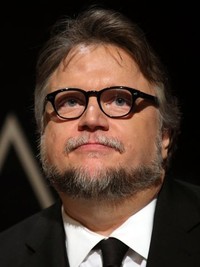Guillermo del Toro

As part of the wave of Mexican filmmakers who have made an indelible mark upon American cinema in the 1990s, director Guillermo del Toro - along with compatriots Alejandro González Iñárritu, and Alfonso Cuarón - attained a remarkable level of critical and box-office success in an environment not conducive to international filmmaking. Unlike his peers, however, del Toro steered away from making art house films about his native Mexico, focusing instead on helming old-fashioned horror movies. Bursting onto the scene with his first effort, "Cronos" (1993), del Toro learned how to deal with Hollywood the hard way with his first studio effort, "Mimic" (1997). After directing "The Devil's Backbone" (2001), a return to independent film and his native Mexico, he took on Hollywood a second time with "Blade II" (2002), only this time with more success. His critically acclaimed adaptation of the comic book "Hellboy" (2004) was followed by the critically acclaimed "Pan's Labyrinth" (2006), a stark, but dream-like horror fantasy that earned three Academy Awards and helped to make del Toro a rare success in both the United States and his homeland. He went on to direct the successful sequel "Hellboy II: The Golden Army" (2008) while stepping into a producer's role for "Biutiful" (2010) and "Don't Be Afraid of the Dark" (2011). Whether as a writer, director, producer and even novelist, del Toro drew upon an eclectic mix of horror, science fiction and fantasy to create unique and sometimes bizarre films that earned him a loyal following.